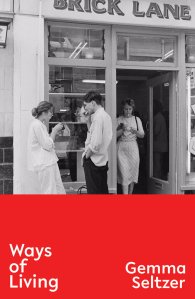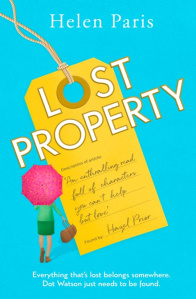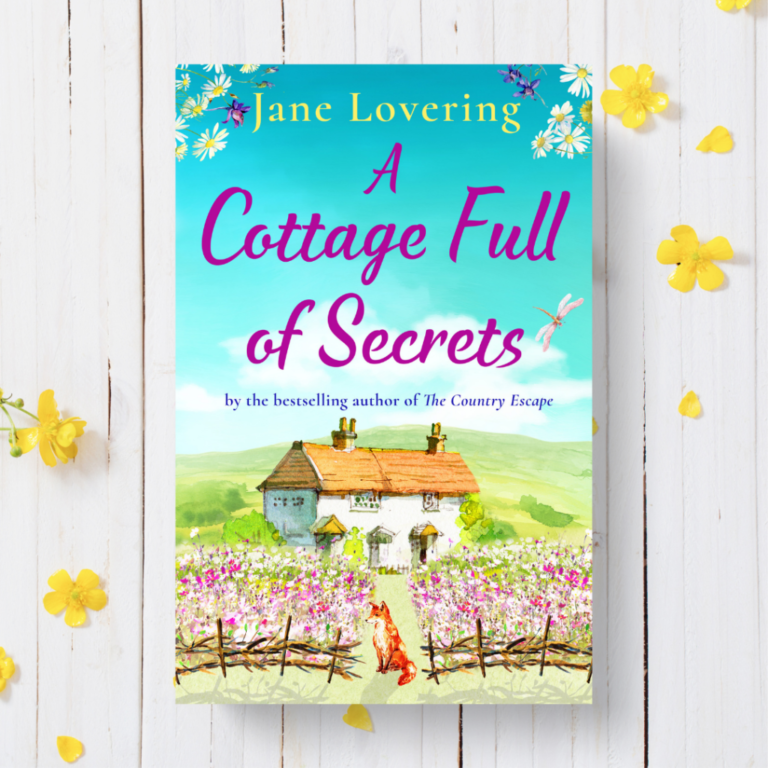Gemma kindly answered a few of my questions.
What’s your spirit animal?
I read a lot, especially in winter. I feel winter offers us the chance to embrace dreaminess, slowness and silence. I read a great article by Jeanette Winterson in which says: “I find myself responding to the changes in the light, and adjusting my ways from outdoors to indoors. I read more in the winter, write more, think more, sleep more. I don’t plan any of this–rather I don’t resist the seductions of darkness.” I feel the same. Cosy, quiet evenings with a good book always offers me so much comfort.
2. What inspired the book?
And I love the idea that I’m taking a reader on a journey, so I sometimes guide them somewhere unexpected, disorientating and unsure which path the story will take. That’s because I’m trying to offer a new perspective on familiar places and to address the complexity of how women navigate the city.
3. Are you a plan, plan, plan writer or do you sit down and see where the words take you?
Ways of Living is Gemma Seltzer’s keen exploration of what it means to be a modern woman inhabiting the urban landscape. Ten stories of ordinary women going to extraordinary lengths to be understood, acting in bold and unpredictable ways as they map their identities onto London’s streets.
One thing that I’m happily surprised by is the generosity and kindness of other authors. I’m part of a brilliant group of writers and artists that meet each month to support each other, celebrate and let off steam, as well as share new writing. Especially during the pandemic when it’s been much harder to raise the visibility of projects and books, I’ve seen a lot of goodwill and solidarity within the communities I’m connected to and on social media.
7. I like to end my Q&As with the same question so here we go. During all the Q&As and interviews you’ve done what question have you not been asked that you wish had been asked – and what’s the answer?
5. What do you do when you aren’t writing? What do you do to relax and get away from it all?
I wanted to write a book about women moving through the world, claiming space and making the city their own. By women walking and writing about walking—about taking up space in the city and on the page, seeing and connecting to other people, sharing very real concerns about safety—I think we play a part in opening up the streets for others.
That said, some questions don’t have answers. We often act and speak without reason. We surprise ourselves, so I’m happy to leave aspects of my stories open to interpretation and for people to judge what happens or to find their own reasons. It’s amazing when I hear from a reader and hear their version of the story, justifying or objecting to a character’s choices and actions.
Andie can see no other way to escape a wedding than by hiding in a tree. Esther starts a new life in a King’s Cross hotel with a bad-tempered ventriloquist dummy, while Gina finally leaves a group of infuriating friends – but not before providing them with a suitable replacement.
6. If you could only read one book for the rest of your life which book would it be?
Definitely the latter! I have learned to trust the pen will take me where I need to go. When questions arise in the writing—where is her mother, does she live alone, why does she act that way?—I make a note to remind myself I need to find an answer as I write. Then I keep following the characters and listening to their voices, hoping the inner logic of the story will offer a route forward.
1. Tell us a little about Ways of Living.
The collected works of Shirley Jackson. I discovered Jackson’s writing last year, and now am obsessed with her beautiful, unsettled and quietly subversive stories.
Lorelei Gilmore
I also find so much inspiration and understanding from my friends, and it continually surprises me that so few books and films foreground female friendship. Often women’s relationships are shown in relation to men: being wives or mothers or lovers or daughters. The reality of female friendship is that it’s intense and passionate and brilliant and heartbreaking—as Jamaica Kincaid says: “Friendship is a simple thing, and yet complicated; friendship is on the surface, something natural, something taken for granted, and yet underneath one could find worlds.” I wanted to write about both the surface and the ‘underneath’ too. We just don’t see enough women with their friends! Friendship is such a vital part of our city lives, and I am so interested in the version of how we are ourselves we are with our friends. Ways of Living explores that through each of the stories.
How do we speak and listen to each other? Who gets to talk? And what is the true power of quiet in a noisy world?
Gemma Seltzer’s short story collection, Ways of Living, was published by Influx Press on 15 July 2021.
Thanks Janet! Ways of Living is a collection of ten short stories about ordinary women who do extraordinary and strange things: one climbs a tree to avoid a wedding, another abandons all her friends, and one makes a new life with a ventriloquist dummy.
All the stories were drafted while walking in London, and are influenced by the experience of navigating the city on foot. Each weaves in overheard conversations, memories and pieces of the landscape. The setting is a London you would know, with people you may meet and specific places names—like Beigel Bake and the King’s Cross Travelodge—alongside unnamed cafes and bookshops. I tried to offer a new perspective on familiar places and to address the complexity of how women move through London. For many women, there are so many layers of thoughts and fears, joys and concerns, playing out beneath the surface when they walk in a city.

4. Is there anything about the publishing process that still surprises you?
About the Book







